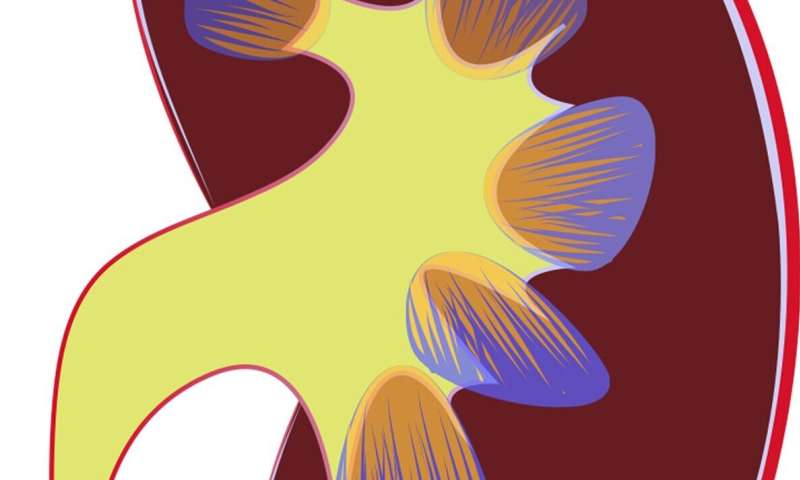

Receiving prescriptions of opioids was linked with higher risks of death and hospitalization compared with receiving other pain medications, and the risk of death was especially high in individuals with lower kidney function. The findings appear in an upcoming issue of CJASN.
When individuals with chronic kidney disease (CKD) are in need of pain medications, opioids are often prescribed due to concerns of kidney toxicity from other medications such as non-steroidal anti-inflammatory drugs (NSAIDs). Because opioids are excreted by the kidney, however, people with CKD may experience higher exposure to the active compounds of opioids because of less clearance from the body. To date, few studies have quantified the safety of prescription opioids across different levels of kidney function.
To investigate, a team led by Tessa Novick, MD, MSW, MHS and Morgan Grams, MD, Ph.D. (Johns Hopkins University) examined information on deaths and hospitalizations among adult primary care patients in the Geisinger Healthy System of Pennsylvania between 2008 and 2017. People receiving their first opioid prescription were matched to people receiving NSAIDs.
The analysis included 23,123 patients who received opioids and the same number who received NSAIDs. There were 2,457 deaths and 9,147 first hospitalizations, corresponding to 12 deaths and 54 hospitalizations per 1,000 person-years. (A person-year is the number of years of follow-up multiplied by the number of people in the analysis.)
“We found that receipt of prescription opioids was associated with a higher risk of death and hospitalization compared with other pain medications, particularly with higher doses. The risk of death was highest among people with lower kidney function,” said Dr. Novick.
Source: Read Full Article